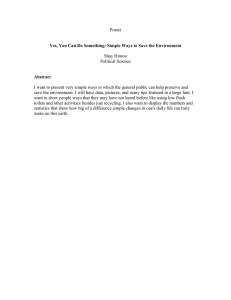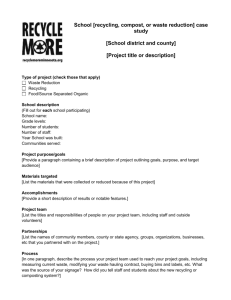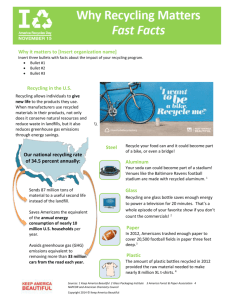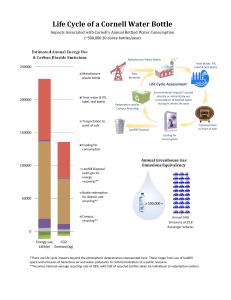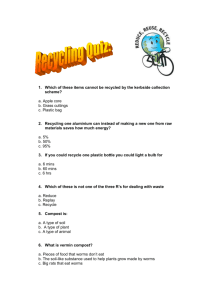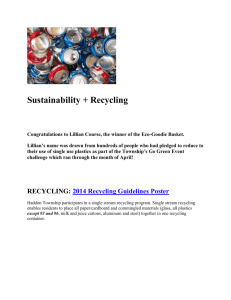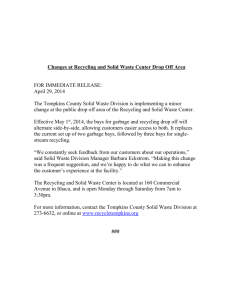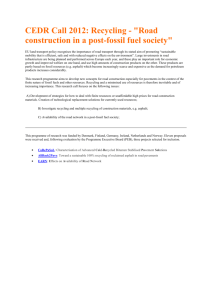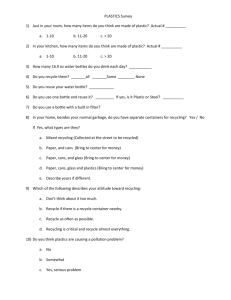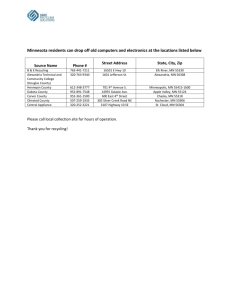here - Carlton Community College
advertisement
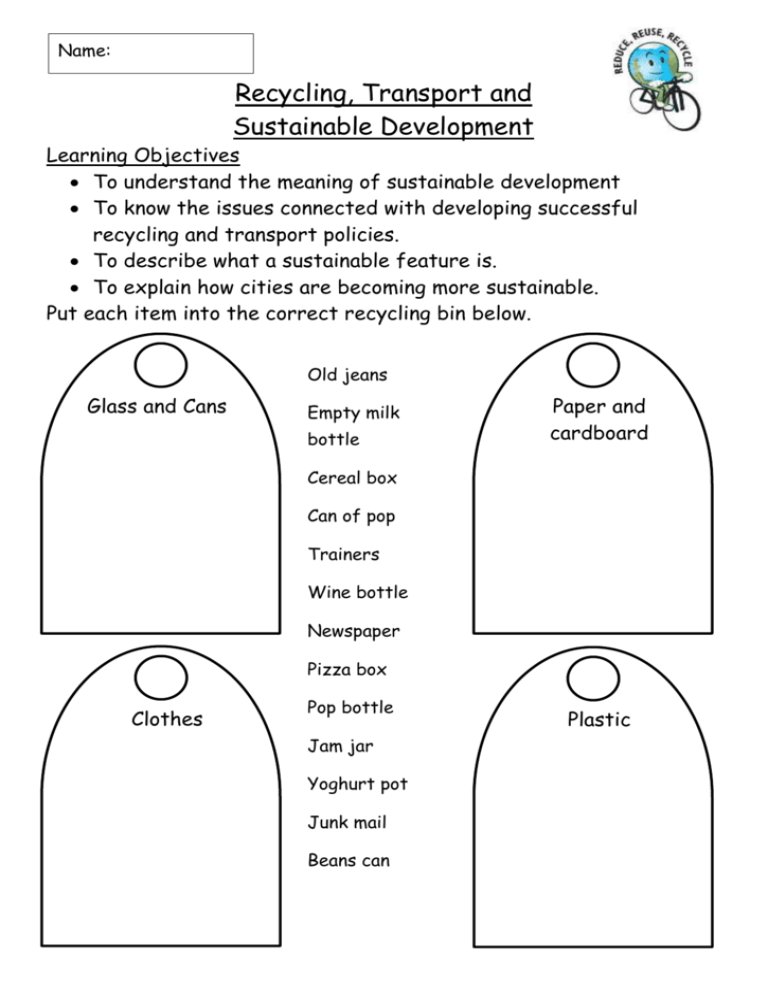
Name: Recycling, Transport and Sustainable Development Learning Objectives To understand the meaning of sustainable development To know the issues connected with developing successful recycling and transport policies. To describe what a sustainable feature is. To explain how cities are becoming more sustainable. Put each item into the correct recycling bin below. Old jeans Glass and Cans Empty milk bottle Paper and cardboard Cereal box Can of pop Trainers Wine bottle Newspaper Pizza box Clothes Pop bottle Jam jar Yoghurt pot Junk mail Beans can Plastic Transport Comparison Activity There are many different forms of transport. What do you think are the benefits and disadvantages of each type of transport listed below? Car Boat Positive Negative Positive Negative Train Positive Bus Positive Negative Plane Positive Negative Negative Bicycle Positive Negative Read each box and tick if you save energy this way. Draw and label another point for your energy action plan. 11. How energy efficient are you? (11) Energy Water Traffic Recycling Rainfall is collected and used to flush toilets and water plants. Wind power and solar power is used to produce electricity for light and heat. Houses built use methods that save energy and materials and are well insulated to keep heat in. There are good public service links such as buses, trams and trains. People are encouraged not to drive but to walk, cycle or use public transport. Waste water from baths and showers can be collected and filtered and used to water plants and flush toilets. Increase in pedestrian only areas and roads may be designed to make driving difficult. Methods such as planting trees and lightening surface colours are used to reduce the need for air conditioning. Recycling is essential to cities around the world. It uses less energy, which preserves natural resources for the future. Councils offer new wheelie bins to collect glass, paper and garden waste. Green House Design Design an environmentally friendly house and explain how it is sustainable.
